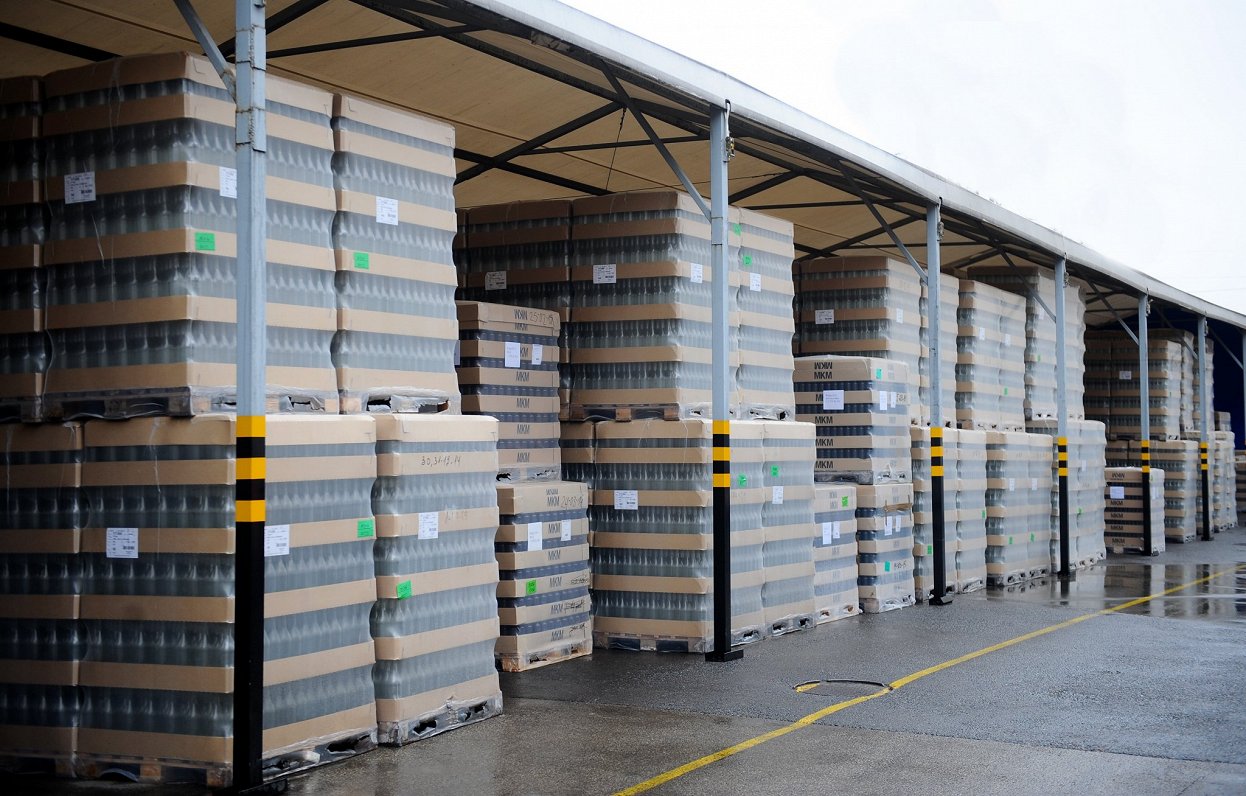Britain is currently one of the largest export markets for Orkla Latvija, representing around 26% of its export turnover. The company's communications director, Lineta Mikša, said that the UK's withdrawal from the EU will mean a more complicated customs procedure, which will lead to additional costs for both customers and the company, as well as a slight increase in the price of the product on the market.
That could reflect a slight drop in sales in the first half of next year, but the company is already forecasting modest growth in the second half of the year.
“First of all, we will pay for customs brokerage services, and we forecast that they will be €60 thousand a year, which we will pay in addition to declarations. It will certainly make us rethink the assortment we are exporting,” Mikša said.
She explained that additional costs are expected: “Britain is an ethnic market for us because there are very many Latvians out there and we export almost all of our assortment, over 1800 product units. If there is a requirement to indicate the distributor on the labelling of products, this will also lead to additional costs for the packaging of products.”
This requirement has not yet been formally accepted, so Orkla Latvija has not planned such costs in 2021 but is considering it as a potential opportunity.
For the producer of veneer Latvijas finieris, the United Kingdom is one of the five largest export markets. The company's board member, Mārtiņš Lācis, said that Latvijas finieris has been working on the UK market for 30 years and has developed a stable range of customers, because in Britain birch plywood is not produced, so they are forced to import it.
Lācis pointed to additional customs costs, but the company was prepared for it: “As we sell our products on virtually every continent, we have nothing new as a company. Just another new country. And also from the logistics point of view, as we deliver through ports, the ports are much more willing to cooperate with the EU on these customs issues and have more capacity than they would be for road deliveries.”
Jānis Mozga, chairman of the board of the logistics company Sonora, said that it was a little strange that the British-EU agreement has dragged on and there are no clear rules for entrepreneurs, so complications can arise in the first months of next year.
“[It is unknown] what the fees will be and what the final agreement will be, how competitive the European Union's output will be. (..) Brexit is likely to increase transportation and logistics costs and will make goods more expensive in the country of supply,” Mozga said.
For the tech start-up Giraffe 360, United Kingdom is almost a home market, with 70% of its customers based there. The company's board chair, Mikus Opelts, said that the unknown doesn't bother him because it is daily life in business. The COVID-19 crisis surprised everyone unprepared, too.
Opelts said: “We always want more clarity and the clearer the rules, the easier it is to plan and operate, but on the other hand, the world is changing very quickly. We wanted more clarity on Brexit, of course, but that is how it is and we will operate with what will be available.”




























